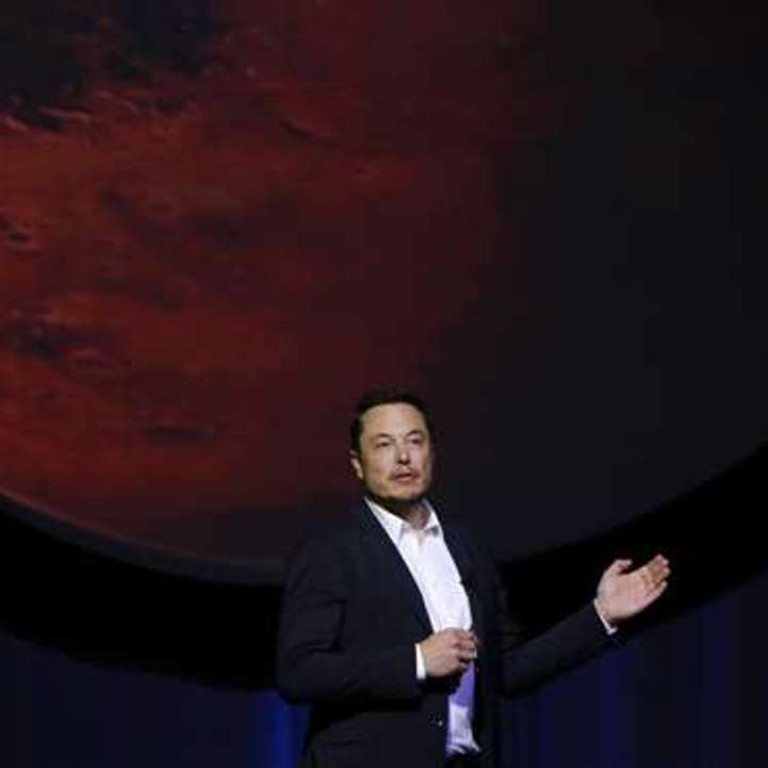
Forget about flag-waving from Mars, colonies on the moon are the future
The technology is available to build true communities, and money would better spent on that rather than on a race to be the first to colonise a new planet
As Nasa lobbyists are apt to remind us, such spending [on space projects] amounts to just a few dollars per capita per year, and pales in comparison with the US$3 trillion or so spent in fighting a questionable war in Iraq. But I would prefer to see significant billions drawn from this budget and spent on our more earthly challenges.
David Dodwell,
Back to Business, October 3
I’m all for saving that US$3 trillion that the American death machine has spent on destroying Iraq but I’m a loonie, not a lizard, and I differ with David here. I want to look out to space from the moon rather than look down where we crawl on earth.
My regret is that once again the debate on how to do it has been sidetracked into staging a manned mission to Mars. It’s Tesla boss Elon Musk who is leading us the wrong way this time with his SpaceX project. Mars is all wrong. Just for starters, how is any Mars colony to deal with temperature variations of 160 degrees Celsius, persistent dust typhoons of up to 150km/h and an atmosphere so thin as to put the colonists in constant grave danger from solar flares and cosmic rays?
How do you build any reasonably sized living structure with sufficient air pressure for humans to doff pressurised space suits and yet not have this air pressure flip these structures high into the thin Martian atmosphere? How do you forestall the inevitable air leaks from the temperature variations and dust storms?
And how do you source energy? There is no oil on Mars, no gas, no coal, no hydro, no thermal vents and no wind power with those thin winds. It will have to be done with solar panels and, leaving aside that the sun shines less than half as brightly on Mars as it does on earth, these panels will soon be destroyed by temperature variations and dust storms. How do you source food and other basic living necessities? A few ideas were posited in a recent bestseller, The Martian, which was later made into a movie, but this was one man working with the residue of an abandoned station and all he could think of was getting back off Mars as soon as he could. It was his best idea.
The better one by far was proposed to the US Congress 40 years ago by Princeton professor Gerard O’Neill. It has unfortunately languished since then because it requires long and hard work before any spectacular flag-waving results. O’Neill proposed a moon colony that would source minerals for building massive metal structures in space, which would spin to impart gravity to their inhabitants and could be safely located on the moon’s orbit around earth at what are called the L4 and L5 Lagrangian points.
The technology has been well studied and is feasible. Sufficiently strong giant structures of up to several kilometres in diameter can be built in weightlessness and provide reasonably comfortable living. Moon minerals for building them can be shot up into orbit through maglev mass drivers in the moon’s airless conditions
It will take a long time to do it and may even cost more than an Iraq war but it would mark the real beginning of the space age. With that first structured colony in orbit others could more easily be built and perhaps even pay for themselves through building giant solar panels beaming microwave energy to earth. One planet has been the cradle of our civilisation but all others yet discovered have been hostile environments. The point of the space age is for humanity to leave the cradle, not crawl back into another. The future lies in human communities living in large constructed colonies.
Pardon my enthusiasm but I myself have written three science fiction books on the subject, two of them published, and I think the Mars talk is a retrograde step that is mostly about the national chauvinism of being the first to plant a flag on another planet. That’s a 16th century idea of exploration. Let’s get away from it.

